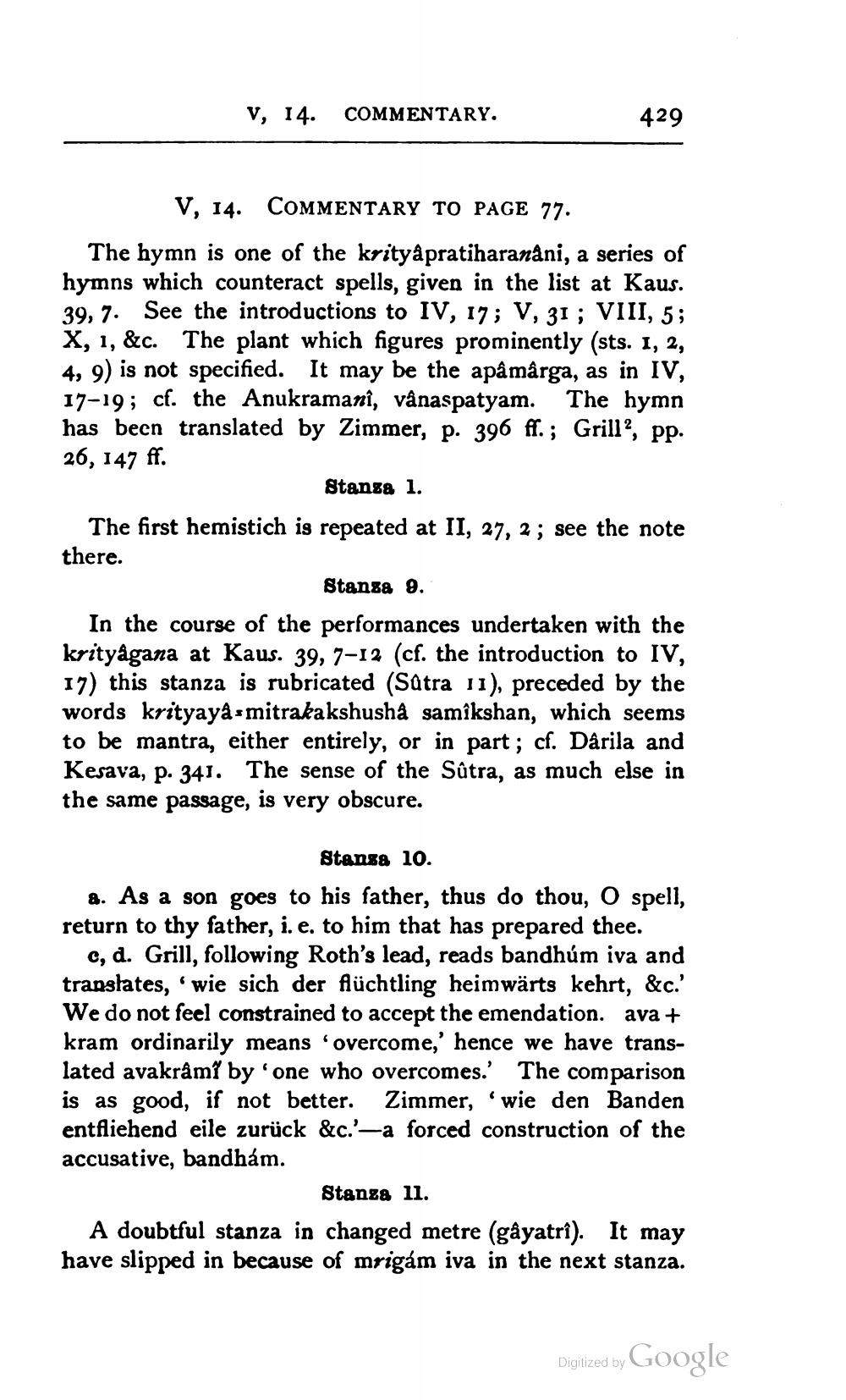________________
V, 14.
COMMENTARY.
429
V, 14. COMMENTARY TO PAGE 77. The hymn is one of the krityâpratiharanâni, a series of hymns which counteract spells, given in the list at Kaus. 39, 7. See the introductions to IV, 17; V, 31; VIII, 5; X, 1, &c. The plant which figures prominently (sts. 1, 2, 4, 9) is not specified. It may be the apâ mârga, as in IV, 17-19; cf. the Anukramani, vânaspatyam. The hymn has been translated by Zimmer, p. 396 ff.; Grill?, pp. 26, 147 ff.
Stanga 1. The first hemistich is repeated at II, 27, 2; see the note there.
Stansa 9. In the course of the performances undertaken with the krityågana at Kaus. 39, 7-12 (cf. the introduction to IV, 17) this stanza is rubricated (Satra 11), preceded by the words krityaya-mitrakakshusha samikshan, which seems to be mantra, either entirely, or in part; cf. Darila and Kesava, p. 341. The sense of the Sûtra, as much else in the same passage, is very obscure.
Stansa 10.
2. As a son goes to his father, thus do thou, O spell, return to thy father, i.e. to him that has prepared thee.
c, d. Grill, following Roth's lead, reads bandhúm iva and translates, wie sich der flüchtling heimwärts kehrt, &c.' We do not feel constrained to accept the emendation. ava + kram ordinarily means overcome,' hence we have translated avakrâmî by one who overcomes. The comparison is as good, if not better. Zimmer, 'wie den Banden entfliehend eile zurück &c.'-a forced construction of the accusative, bandhám.
Stanza 11. A doubtful stanza in changed metre (gâyatrî). It may have slipped in because of mrigám iva in the next stanza.
Digized by Google




